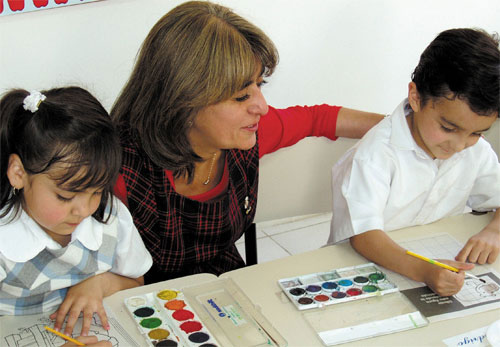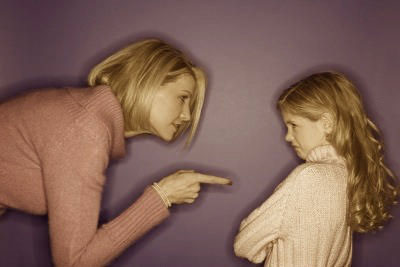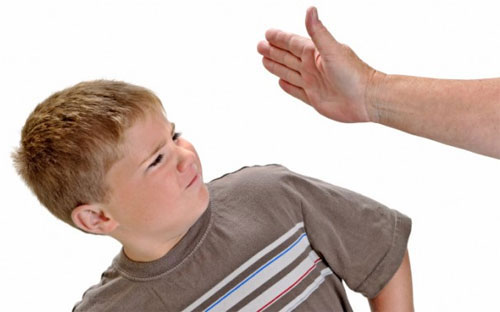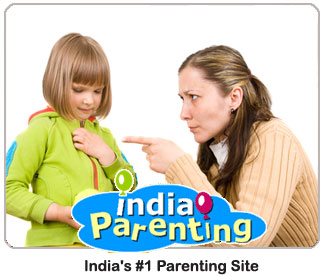Teaching children to apologize is one of the biggest challenges of parenting. Read on to find out how to you can make your child learn to apologize sincerely.Apologizing helps children accept responsibility for a wrong they have committed and subsequently offers a tool that can make things right once more. Children must be taught to apologize from a young age and they need to mean what they say. This not only clears the air but even heals the relationship and gives it a new beginning. The art of apologizing is easier to inculcate in children rather than in adults and so, you must begin early. You should keep in mind that parents play a huge role in the process of learning how to apologize. Therefore, you must practice the same and begin with yourself. In this articleProcess of Model ApologizingEarly BeginnersNever Manipulate Children to Be SincereTeaching to Apologize GenuinelyGiving Time to Accept the Mistake and ApologizeProcess of Model ApologizingIf you think that you acted in a wrong or improper manner, admit it. Do not be shy to say that you are sorry to someone else in front of your children. Suitably apologize for any sort of overreaction. Learn to admit your mistakes. If you feel that you yelled at your child without a good enough reason, talk to them and tell them that you had a hard day and they did not deserve such an outburst. Be sure to remind them that you love them. You are not perfect and are prone to mistakes – it is a fact of life. An apology, however, makes life better. Children must be open to learning such valuable life lessons. Never consider saying “sorry†to your child as a sign of weakness but of strength. A kid who has never been apologized to will never understand the process of apology, and it is likely that he will refuse, turning a potentially advantageous moment into a standoff leading to hurt feelings.Early BeginnersToddlers are quick to learn to offer a hug if they feel that someone is hurt in an effort to make them feel better. In your home environment, try to model hugs for hurts, so that your toddler will know what to do. As soon as he is calm and ready to hug, you can come up with a simple yet heartfelt apology and may be aid him in saying it with a hug.Never Manipulate Children to Be SincereThere are children who spout “I’m sorry†or “Excuse me†within seconds of committing the offense to get themselves off the hook fast. This results from parents who force apologies out of their children. Parents must learn that they can never force feelings. The child remains in full control of his feelings and only he knows how he feels. Teaching to Apologize GenuinelyIf you force your kid’s feelings, he might learn to offer fake apologies and then take it as a sign that it is okay to be insincere even when you apologize since you are usually forgiven. Based on the age groups your children, their temperaments and their emotions and the circumstances, you need to develop a cooling-off period prior to the apology. Giving Time to Accept the Mistake and ApologizeA small child who kicked his or her sibling might require some time-out on a chair along with a brief reminder that kicking is bad and it hurts, before he or she is allowed to hug his or her sibling. A ten year-old boy who slaps his sister for teasing him should be given sufficient time to deal with wounded pride before he is able to understand how wrong his action was. Your role as the parent is to ensure that the apology takes place in such a manner that both children can begin once more with mutual feelings of well-being between them. However, you cannot force it to happen. All you can do is model and instruct and hope for the best.Teaching children to apologize is one of the major hurdles of parenting. There are a couple of challenges along the way but once you overcome them, you will notice just how rewarding How to teach children to apologize genuinely? At what age should children learn to apologize for their mistakes? Is it ok to force children to apologize? Discuss here.
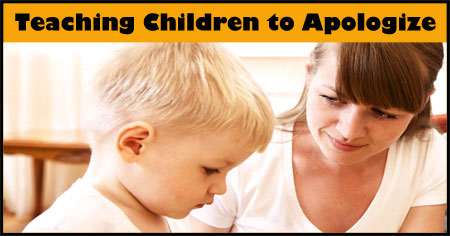 Teaching children to apologize is one of the biggest challenges of parenting. Read on to find out how to you can make your child learn to apologize sincerely.
Teaching children to apologize is one of the biggest challenges of parenting. Read on to find out how to you can make your child learn to apologize sincerely.Apologizing helps children accept responsibility for a wrong they have committed and subsequently offers a tool that can make things right once more. Children must be taught to apologize from a young age and they need to mean what they say. This not only clears the air but even heals the relationship and gives it a new beginning. The art of apologizing is easier to inculcate in children rather than in adults and so, you must begin early. You should keep in mind that parents play a huge role in the process of learning how to apologize. Therefore, you must practice the same and begin with yourself.
Process of Model Apologizing
If you think that you acted in a wrong or improper manner, admit it. Do not be shy to say that you are sorry to someone else in front of your children. Suitably apologize for any sort of overreaction. Learn to admit your mistakes. If you feel that you yelled at your child without a good enough reason, talk to them and tell them that you had a hard day and they did not deserve such an outburst.
Be sure to remind them that you love them. You are not perfect and are prone to
mistakes – it is a fact of life. An apology, however, makes life better. Children must be open to learning such valuable life lessons. Never consider saying “sorry†to your child as a sign of weakness but of strength. A kid who has never been apologized to will never understand the process of apology, and it is likely that he will refuse, turning a potentially advantageous moment into a standoff leading to hurt feelings.
Early Beginners
Toddlers are quick to learn to offer a hug if they feel that someone is hurt in an effort to make them feel better. In your home environment, try to model hugs for hurts, so that your
toddler will know what to do. As soon as he is calm and ready to hug, you can come up with a simple yet heartfelt apology and may be aid him in saying it with a
hug.
Never Manipulate Children to Be Sincere
There are children who spout “I’m sorry†or “Excuse me†within seconds of committing the offense to get themselves off the hook fast. This results from parents who force apologies out of their children. Parents must learn that they can never force feelings. The child remains in full control of his feelings and only he knows how he feels.
Teaching to Apologize Genuinely
If you force your kid’s feelings, he might learn to offer fake apologies and then take it as a sign that it is okay to be insincere even when you apologize since you are usually forgiven. Based on the age groups your children, their temperaments and their emotions and the circumstances, you need to develop a cooling-off period prior to the apology.
Giving Time to Accept the Mistake and Apologize
A small child who kicked his or her
sibling might require some time-out on a chair along with a brief reminder that kicking is bad and it hurts, before he or she is allowed to hug his or her sibling. A ten year-old boy who slaps his sister for teasing him should be given sufficient time to deal with wounded pride before he is able to understand how wrong his action was. Your role as the parent is to ensure that the apology takes place in such a manner that both children can begin once more with mutual feelings of well-being between them. However, you cannot force it to happen. All you can do is model and instruct and hope for the best.
Teaching children to apologize is one of the major hurdles of
parenting. There are a couple of challenges along the way but once you overcome them, you will notice just how rewarding
How to teach children to apologize genuinely? At what age should children learn to apologize for their mistakes? Is it ok to force children to apologize? Discuss here.











 Teaching children to apologize is one of the biggest challenges of parenting. Read on to find out how to you can make your child learn to apologize sincerely.Apologizing helps children accept responsibility for a wrong they have committed and subsequently offers a tool that can make things right once more. Children must be taught to apologize from a young age and they need to mean what they say. This not only clears the air but even heals the relationship and gives it a new beginning. The art of apologizing is easier to inculcate in children rather than in adults and so, you must begin early. You should keep in mind that parents play a huge role in the process of learning how to apologize. Therefore, you must practice the same and begin with yourself.
Teaching children to apologize is one of the biggest challenges of parenting. Read on to find out how to you can make your child learn to apologize sincerely.Apologizing helps children accept responsibility for a wrong they have committed and subsequently offers a tool that can make things right once more. Children must be taught to apologize from a young age and they need to mean what they say. This not only clears the air but even heals the relationship and gives it a new beginning. The art of apologizing is easier to inculcate in children rather than in adults and so, you must begin early. You should keep in mind that parents play a huge role in the process of learning how to apologize. Therefore, you must practice the same and begin with yourself.




